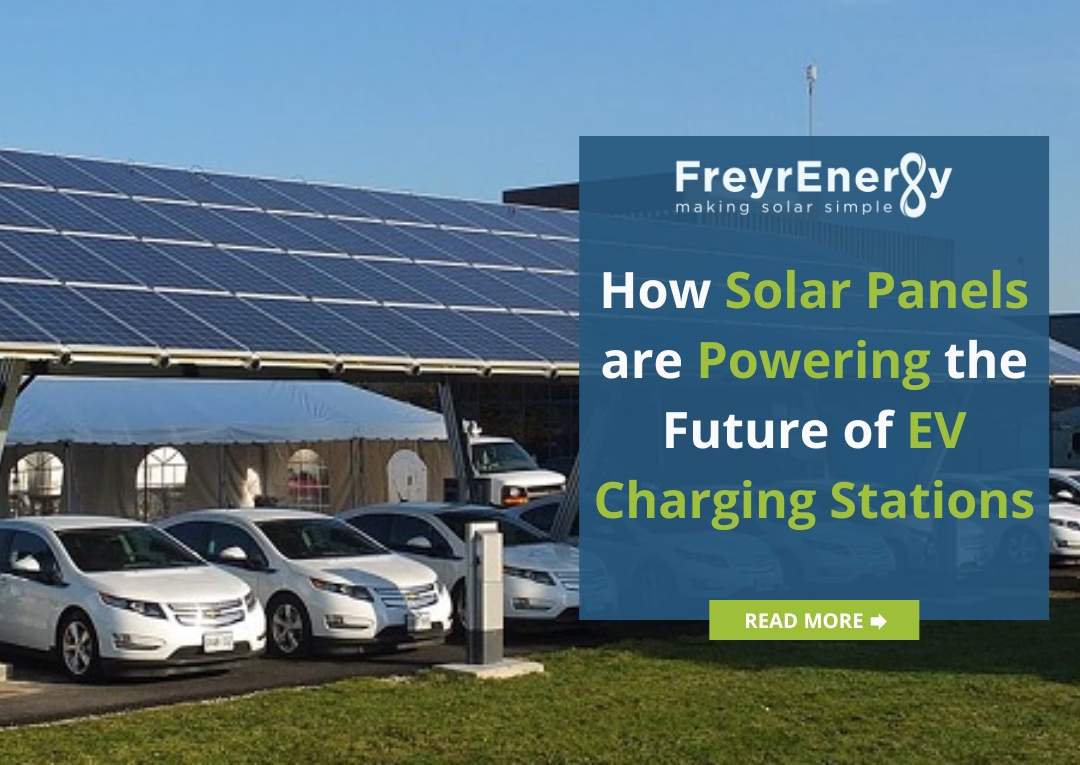The globe is tackling the worldwide issue of greenhouse gas emissions via various strategies, including the deployment of electric vehicles (EVs). The genuine aim of sustainability through these vehicles can only be realized when the obstacles in the charging framework are addressed. This is where solar-powered EV chargers become essential in pursuing a sustainable future.
Expansion of EVs
Due to a marked rise in consumer interest and favorable governmental policies, India is experiencing a swift growth in the production of EVs.
The government aims to reach a 70% increase in the electric vehicle market by 2030. This will significantly impact reducing the carbon footprint.
Nevertheless, a significant hurdle remains for EV adoption: establishing the charging infrastructure. Additionally, electric charging is still partially reliant on fossil fuels, which ultimately contributes to greenhouse gas emissions. Solar EV charging stations represent an excellent alternative for powering EVs in the future.
Why are solar panels the future of EV charging?
Solar energy provides a viable solution to the escalating issue of greenhouse gas effects. Solar power is abundant and renewable, meaning it remains available even with continual usage.
With the reckless extraction of fossil fuels, its supply hasn’t kept pace with the surging energy demand. Furthermore, it contributes to environmental pollution and elevates the carbon footprint.
Utilizing electricity produced from fossil fuels for EV charging compromises the core objective behind introducing EVs.
Solar panels can be seamlessly installed on rooftops, minimizing the necessity for public charging infrastructure. This can encourage more individuals to transition to EVs in the future.
Since solar energy is an inexhaustible resource, it can satisfy the increasing demand for EV charging anticipated in the years ahead.
Advantages of utilizing solar EV charging stations
Cost efficiency
It requires merely an initial investment in the installation of solar panels, after which you can harness the infinite source of solar energy. There are no fuel expenses, resulting in substantial savings, providing a long-term advantage for electric vehicle charging.
Environmental safeguarding
As solar-powered EV charging stations do not emit any harmful gases into the environment, they contribute to environmental protection. They can gradually mitigate the damage inflicted by reliance on non-renewable energy resources as fuel.
Flexibility
As established, solar power is unlimited in availability. As long as the sun shines, we can harness energy from it. This presents a significant advantage through a supply-demand balance. When EV charging relies on electricity from fossil fuels, it cannot keep pace with the growing production of vehicles.
Alleviates pressure on the grid
Over time, reliance on the public grid for electricity decreases with the adoption of solar electric vehicle chargers. This alleviates stress on the grid. Ultimately, this results in lesser pollution and greener environments.
Sustainability
A primary objective of launching EVs is enduring sustainability. This goal can be readily accomplished when solar EV charging stations are implemented.
Insensitivity to price fluctuations
Variable fuel costs have been a significant disruptive factor for EV charging as well. This issue will no longer arise with solar-powered EV chargers.
Simplified installation
Solar electric vehicle chargers can be effortlessly installed in various locations, establishing them as ideal partners for electric vehicles. This way, the number of solar car charging stations can increase dramatically, facilitating easier EV adoption.
Technological innovations in solar for EVs
Smart grid integration
Harmonizing demand and supply by merging solar energy with EVs fosters energy efficiency over time. This represents a transformative shift as it effectively combats climate change.
Smart grid technologies deliver energy back to the grid, ensuring an uninterrupted power supply without reliance on traditional sources. This can significantly advance the EV sector.
Advancements in battery technology
Enhancements in battery technology are vital for the widespread adoption of EVs. Innovative battery storage systems capable of utilizing excess energy to charge vehicles during periods of minimal sunlight are in development.
Intelligent charging
Home charging of electric vehicles necessitates load balancing as they distribute power among all connected devices. Intelligent charging solutions recognize excess load and prevent any damage. Smart chargers optimize solar charging by scheduling during cost-effective periods and connecting to the grid when the load is minimal.
Conclusion
As the country prepares for a gradual transition to electric vehicles, solar-powered EV chargers present an encouraging solution to the charging dilemma. Technological advancements in the solar sector will assist in overcoming storage challenges and others in the long run. Ultimately, the proliferation of EVs, supported by sustainable energy sources like solar, can yield significant advantages for the nation and the globe.
Frequently Asked Questions
A solar-powered charging station generates electricity through solar panels, which are subsequently used to charge electric vehicles. The solar panels capture the sun’s rays to convert them into direct current. This is then transformed into alternating current using inverters to make it usable for vehicles as a power source.
Indeed, an off-grid solar electric vehicle charger can function independently of the main grid. This is achievable with adequate battery storage in the inverter. Surplus energy produced can be preserved and utilized without the need for connection to the primary grid.
Solar-powered EV charging stations at residences or commercial properties significantly lessen reliance on the grid. This results in substantial savings and also safeguards the environment from harm caused by greenhouse gases.
A variety of chargers are accessible and the price varies accordingly. Generally, the cost of a solar electric vehicle charger ranges from INR 1 lakh to as much as 50 lakh.
Solar-powered EV car chargers are effective due to a continuous power supply. Furthermore, they are economical and contribute to alleviating climate change.
Solar charging stations for electric vehicles accumulate energy in the battery storage that accompanies the solar panels. Energy generated by the panels can be utilized immediately or retained in the batteries for use during high-demand periods. Excess energy can also be redirected back to the power grid.

